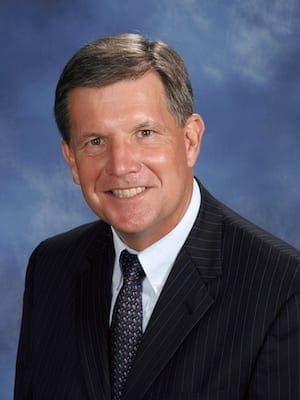In the Baptist world, an ecclesial culture that treasures local church autonomy and operates in a “free call” method for pastoral assignments, there seems to be a new trend emerging.
More and more pastor search committees are considering associate ministers with no senior pastor experience for senior pastor roles.
Throughout much of my ministry, I have observed pastor search committees limit their pool of candidates to ministers with solo or senior pastor experience.
In the past, it has not been uncommon for search committees to limit their search with demographic parameters that are surprisingly narrow, such as seeking candidates “who are 35 to 55 years of age, who have graduated from a Baptist seminary and who have five or more years of senior pastor experience.”
During a Center for Healthy Churches consultants’ retreat last fall, when asked to provide an update on the church from which I had retired, I shared that the church had called a 36-year-old associate pastor who had no senior pastor experience.
And then I added affirmatively, “And he seems to be off to a great start.”
This led to our group recounting and listing the growing number of churches in our circles of acquaintance who have also recently called an associate pastor or a ministry resident to the position of senior pastor.
Our team named 16 such churches immediately and continued to add to the list in follow-up conversations.
We were all surprised at the large number of churches (even those churches some call “big steeple churches,” “flagship churches” or “legacy churches”) who have called new senior pastors whose only previous experience is as an associate.
One of our team members mentioned that when he started out, it was expected that a pastor would begin serving as a solo pastor in a small church, perhaps even while attending college or seminary, and then move to a larger pastorate soon after graduation.
Several of my veteran colleagues recalled that when our generation of ministers moved from a smaller church to a larger church, the biggest challenge was adjusting to a multistaff culture and providing guidance over a much larger budget.
Then we began to itemize the advantages that associates, who already have experience on a medium or large church staff, bring to a senior pastor role:
- They are familiar and comfortable with how a medium-to-large church operates.
- They are already comfortable and familiar with a multistaff environment.
- They are acquainted with budgetary designations, parameters and objectives.
- They bring fresh eyes and ideas to the mission of the church and the role of the senior pastor.
- They usually fall in an age range that makes a long tenure possible.
But there are also challenges for an associate who moves directly to the pastorate of a medium-to-large congregation:
- As an associate, they may have preached periodically, but now they must prepare sermons for 40 to 46 Sundays per year in addition to midweek services and other special events, a responsibility that requires a relentless discipline of preparation.
- Depending on a candidate’s age, they must overcome the stereotype of “youthfulness.”
- They must adjust to senior leadership. Even though an associate has experience leading large groups of people, senior pastoral leadership can often be more like herding cats than shepherding sheep.
- A senior pastor must show fairness and balance to all the ministries of the church and not be preferential. For example, an associate who has served for years in student ministry cannot give preferential treatment to student ministry.
- An associate who becomes a senior pastor must be patient with the learning curve and not expect to have the wisdom of a veteran pastor overnight.
Dave Snyder recently transitioned from an associate’s role to serve as the new senior pastor at First Baptist Church of Pensacola, a church with 2,600 members.
When asked about some of the biggest challenges he has faced, Snyder immediately mentions the learning curve: “My lack of experience as a senior pastor presents some unique challenges. For example, there is no history in my soul when it comes to dealing with major church issues, unexpected tragedies and overall staff leadership. Each month of my first year tends to be a classroom full of lessons learned. When leading staff meetings, prayer gatherings, ordinances, counseling and preaching, I don’t have years of experience or expertise to draw on. Although my excitement is there, the lack of history in the role can produce an uneasiness in me if I allow it to.”
Then Snyder adds, “But after 17 years in student ministry, I have discovered new life and excitement in ministry. A senior pastor carries different types of work and labor. I have been excited about my first Christmas Eve service, my first Lord’s Supper and my first deacon ordination. For veteran senior pastors, these come as normal parts of the call. In my first year, they are all brand new. On top of these, meeting, shepherding and teaching the people of God creates deeper joy in my call. Multi-generations of people are now under my care. Although this is a huge undertaking, I am being strengthened by God’s grace.”
Pastor search committees who are looking for the best possible senior pastor for their church are discovering that experienced associate pastors and ministry residents are prime candidates for their committee’s consideration.
Associate ministers have a wealth of experience, which enables them to adapt to a senior pastor role in a short period of time.
And much like participants in a medical residency program, ministry residents who have served two or more years in a local church residency program usually complete a full rotation in multiple areas of specialization, which gives them more diverse experience than many pastors who have not had the privilege of getting hands-on experience in multiple staff areas.
Editor’s note: A version of this article first appeared on the Center for Healthy Churches’ blog. It is used with permission.
Pastor at the Wieuca Road Baptist Church in Atlanta. He also serves as a leadership coach and columnist for the Center for Healthy Churches. He and his wife, Amanda, live in Brookhaven, Georgia.


